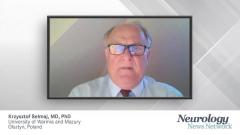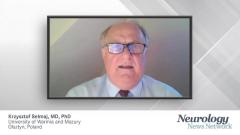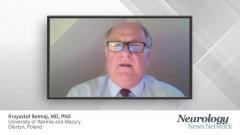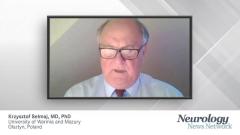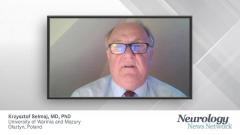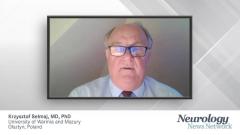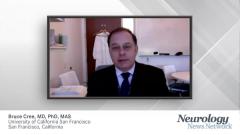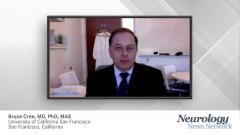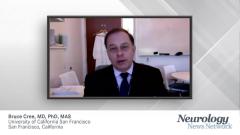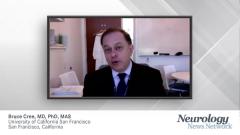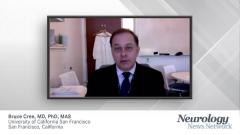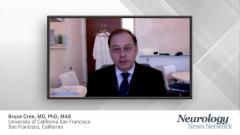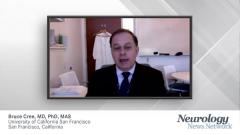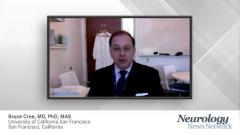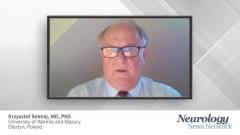
Long-Term Data With Other S1P Receptor Modulators in Multiple Sclerosis
Bruce Cree, MD, PhD, MAS, discusses the data of long-term studies on fingolimod and ponesimod in relapsing-remitting multiple sclerosis (RRMS) and siponimod in secondary-progressive multiple sclerosis (SPMS).
Episodes in this series

Transcript
Bruce Cree, MD, PhD, MAS: We do have long-term safety and efficacy data for the other S1P receptor modulators. There’s data from the long-term study for fingolimod that wind up to be about 14 years of data. Overall, this study found that safety and efficacy for fingolimod was very similar to that in a randomized control trial; no new safety signals were identified. Generally speaking, patients with relapsing MS who were treated with fingolimod experienced low levels of disease activity or progression. There were also data from the siponimod clinical trial, which was a study in secondary progressive multiple sclerosis, and I think this is an important distinction between siponimod and the other S1P receptor modulators. The other S1P receptor modulators were developed in patients with relapsing MS, whereas the siponimod clinical trial looked at patients with secondary progressive disease. Now, of course, secondary progressive MS and relapsing MS are on a continuum, but nonetheless, patients with SPMS tend to have more disability, live with MS for a longer period of time, and therefore constitute quite a different clinical trial population than the relapsing MS patients. What siponimod did show was a robust effect in terms of disability prevention and an impact on relapses and other measures of disease activity, as well as preservation of brain volume over time. So, it’s the only one of these S1P receptor modulators that has shown proven efficacy in patients with secondary progressive multiple sclerosis. Now, this study has also had a long-term extension as well, and data that went for more than 5 years was analyzed, and just like for fingolimod, there was a sustained and very consistent long-term effect of siponimod on prevention of disease activity, and no new safety signals were identified in the long-term follow-up study. Lastly, for ponesimod, there was a publication from the phase 2 clinical trial program, so this is a somewhat smaller group of study participants, and just under 500 participants from the phase 2 program went into the extension study, and this went over about an 8-year period of time. The results of this study also, like the others, were very consistent with low rates of disease activity, with a low annualized relapse rate, and the large majority of individuals remaining relapse free, and no new safety signals identified. I think very consistently across all 4 S1P receptor modulators, there is a consistent treatment effect that is appreciated over time, and safety profiles that are very consistent with what we have understood from the clinical trial development program.
Transcript edited for clarity.
Newsletter
Keep your finger on the pulse of neurology—subscribe to NeurologyLive for expert interviews, new data, and breakthrough treatment updates.


